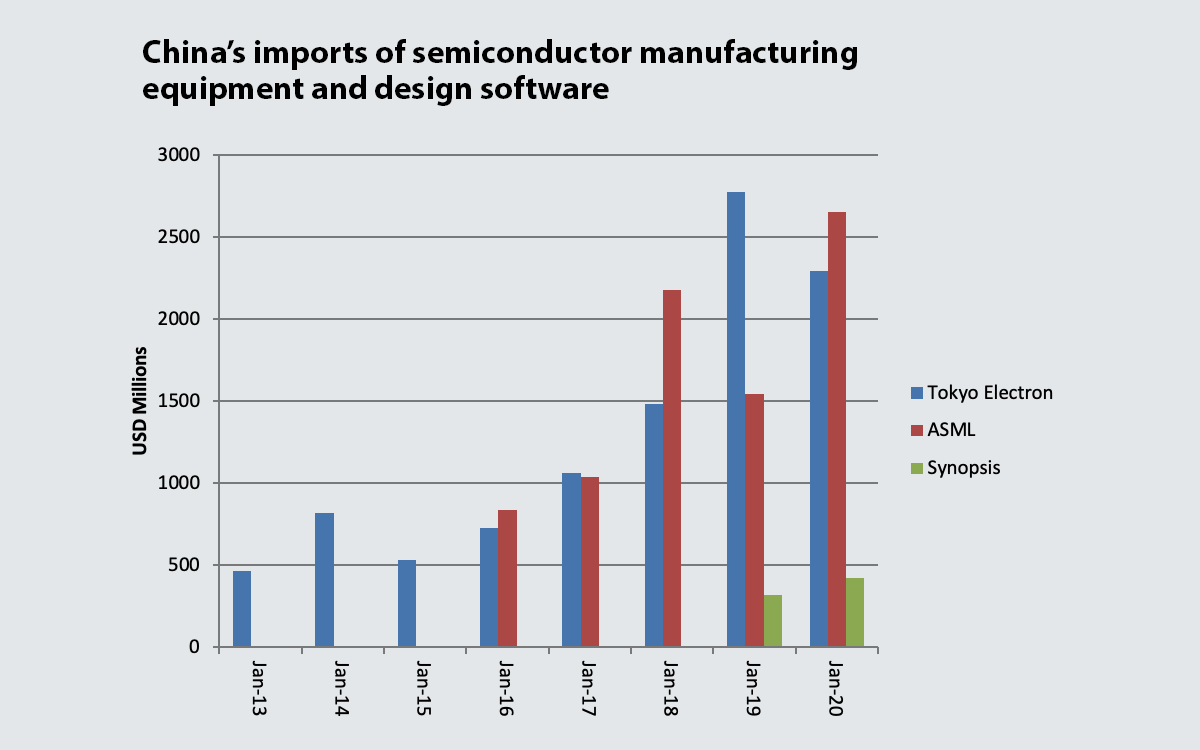[ad_1]
China is making an all-out effort to achieve independence in semiconductors, but the learning curve is steep and US sanctions are hurting.
America’s National Security Council for Artificial Intelligence issued a 750-page report yesterday proposing that the “United the United States and its allies should utilize targeted export controls on high-end semiconductor manufacturing equipment… to protect existing technical advantages and slow the advancement of China’s semiconductor industry.â€
Largely ignored by the major American media, the NSCAI document made the headlines in China’s political websites, including this report at guancha.cn, which often acts as a sounding-board for China’s State Council.
US restrictions on the sale of high-end computer chips as well as semiconductor manufacturing equipment threaten China’s high-tech ambitions, including its $200 billion rollout of a national 5G broadband network, according to industry experts. China is an aggressive buyer of semiconductor manufacturing equipment as part of a national effort to reduce its $300 billion a year in semiconductor imports, but it can’t get the most advanced machines. The world’s top maker of chip lithography machines, the Dutch firm ASML, has quintupled its sales to China since 2016, but US sanctions allow ASML to sell only older-generation DUV (Deep Ultraviolet) machines, rather than the top-of-the-line EUV (Extreme Ultraviolet) equipment required for the most advanced chips.
China is also buying a lot of design software from US firms like Synopsis, although Huawei and ZTE remain on the Commerce Department’s entity list. Chip design isn’t the bottleneck for China: Huawei’s Kirin 9000 chipset competes with anything that Qualcomm and Nvidia have to offer, but Taiwan’s TSMC is the only fabricator able to manufacture the chips, and US restrictions have shut that down.
Huawei and ZTE can’t source enough of the chips it requires for their 5G base stations, and the pace of infrastructure buildout might slow later this year. Seasoned industry observers warn that a full-scale tech war may be shaping up between the US and China. The NSCAI report was directed by former Google chairman Eric Schmidt and former Deputy Defense Secretary (during the Obama Administration) Robert Work, and the Biden Administration will read it carefully. If the US tries to choke off China’s semiconductor industry, semiconductor industry officials warn, China will retaliate – by cutting off exports of rare-earth minerals to the United States or impeding the Chinese operations of top American companies such as Apple.
[ad_2]
Source link














